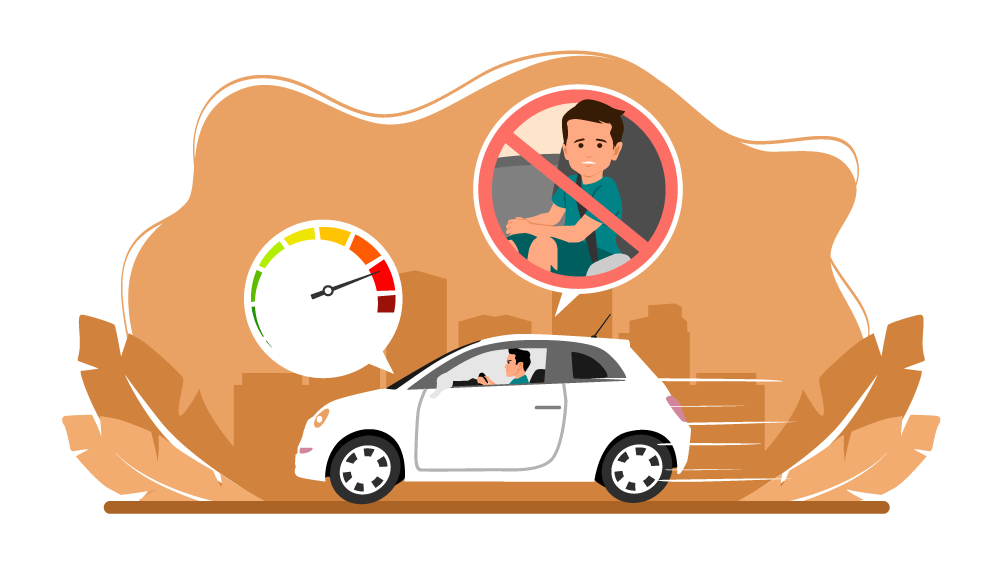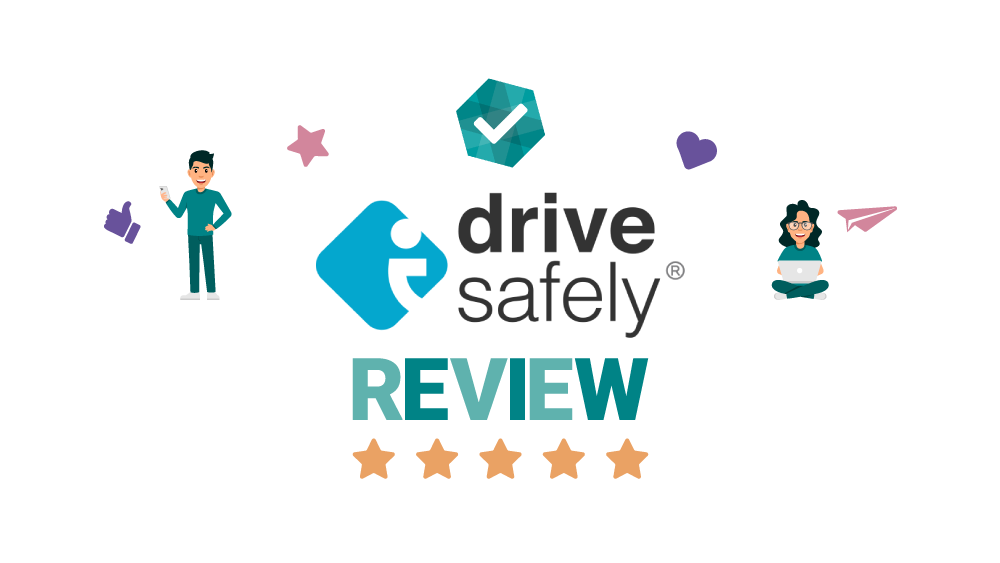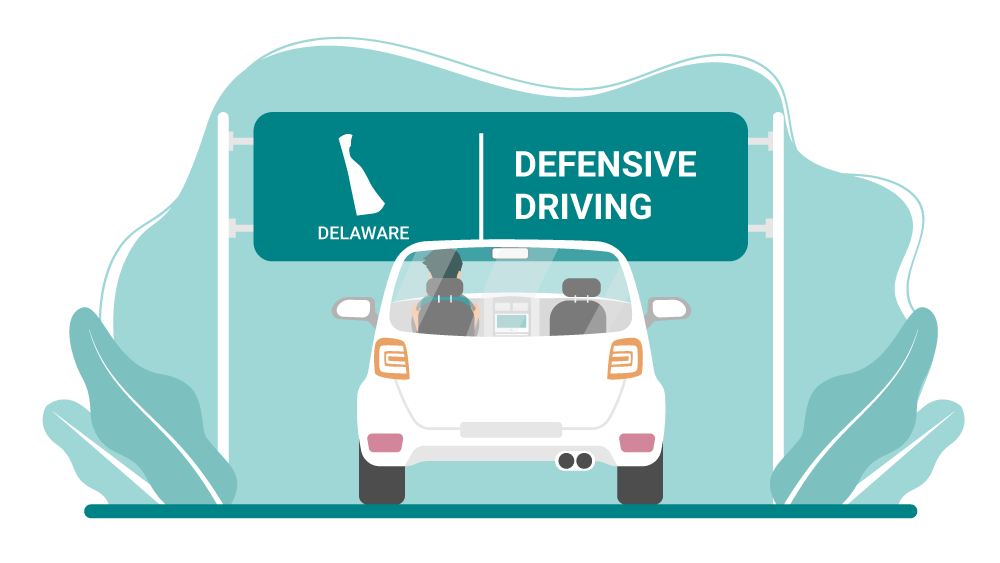Speeding can obviously get you a ticket. However, there is a point where speeding becomes child endangerment, which is far more serious.
It’s important to know when speeding will become child endangerment. While you should never speed on the roads, it’s even worse when a child is in the car. Not only are you putting yourself at risk, in this situation, but also the child in your vehicle.

Typically, when you start to travel at 25 mph above the posted speed limit, it’s considered reckless driving. In some states, it only takes 15 mph over the posted limit. Not all speeding cases at this speed will be considered reckless driving, however.
Before we look at when speeding becomes child endangerment, it’s important to define child endangerment.
What is Child Endangerment?
According to LegalMatch.com, child endangerment is a criminal act that happens when a person puts a minor child into a dangerous situation where the child could be seriously harmed or killed. It’s often a criminal charge connected with another crime. Child endangerment might be a charge accompanying a DUI, illegal drug use, or assault charge.
It’s not necessary to be the parent of the child to be charged with child endangerment, either. When it’s a situation where you have assumed responsibility for the child, you can be charged with child endangerment.
What is the Penalty for Child Endangerment?
If you’re convicted of child endangerment, the punishment will vary, depending on your state. However, it’s a very serious offense. Child endangerment can be classified as a felony or a misdemeanor.
The jail sentence can range from a few months to many years. The worse the harm could be for the child, the worse the sentence will likely be if you’re convicted.
When Speeding Becomes Child Endangerment
While most traffic crimes end up with a ticket or infraction, speeding with a child in the car can be a bit more serious. If you already have enough points on your driver’s license, it could also lead to a more serious punishment than just a fine. Also, if you’re intoxicated, the penalties for any traffic crime will be worse.
As soon as you add a child to the mix, the charges get worse. Of course, getting caught going a few miles over the speed limit with a child in the car is likely not going to result in more than a traffic ticket. However, if you’re really flying down the road or you’re under the influence, speeding can become a child endangerment charge rather quickly.
The state you are in when you get pulled over will likely determine when speeding becomes child endangerment. Usually, if the speed you’re going is enough to charge you with reckless driving or you’re also intoxicated, it can lead to a child endangerment charge.
Another time when child endangerment might come out of speeding is in the event of an accident. If it’s proven that you were speeding and you caused injury to a child, you may be charged with child endangerment.
Is it Necessary for Child Endangerment to be Intentional?
A prosecutor doesn’t have to show that a caregiver or parent put a child at risk intentionally. Child endangerment is figured out based on a reasonable person’s standard. If the accused put a child in danger but didn’t realize it, but a reasonable person would realize it’s dangerous, it could become a case of child endangerment. With speeding, it’s usually pretty straightforward.
Common Penalties for Child Endangerment Charges
If you’re charged with child endangerment due to speeding with a child in the car, you may be charged with a misdemeanor or felony. The state law and circumstances of the case will determine which type of crime you’re charged with. Usually, if the child was exposed to significant harm or a very dangerous situation, it will be a felony charge.
The penalties you might face include:
- Fines – You will likely end up with some type of fine. It can be as much as $1,000 if it’s a misdemeanor and $10,000 or more if you’re charged with a felony.
- Jail or Prison Time – A misdemeanor child endangerment charge will likely come with up to one year of jail time. If it’s a felony conviction, you will likely face one to 10 years of time in prison.
- Probation – Child endangerment charges may also come with probation sentences. You may spend a year or longer on probation. This is more common when it’s a first-time offense.
- Parental Rights – You may lose or see a change in the visitation you get with your children if you’re charged with child endangerment. It’s even possible to lose your parental rights. If you’re the only parent, your child may be put under the care of a new guardian.
These are the common penalties for child endangerment. If you get caught speeding and it becomes a child endangerment charge, this is what you can expect. These penalties will get far worse if you’re caught speeding with a child in the car and you’re under the influence of alcohol or drugs.
How is Child Endangerment Proven?
Usually, a child endangerment charge will be proven by showing the defendant knowingly or intentionally putting a child in physical, mental, or moral harm. It’s necessary to prove the lack of action or action puts the child in danger of harm or death.
It’s also necessary for the child to be young enough to fall under the child endangerment statute or law within your state. Of course, you will have to be the person that assumes responsibility for the child, as well.
The child does not have to be harmed for you to be charged with child endangerment from speeding. You don’t have to be under the influence of alcohol or drugs. An accident doesn’t have to happen. If it can be proven that you were driving fast enough to be classified as reckless driving, you can be charged with child endangerment in most states.
Other Common Examples of Child Endangerment
While speeding can become child endangerment, there are many other examples, as well. Some of the most common include:
- Leaving a child in your vehicle alone, especially during very hot weather conditions
- Making drugs in your home where your children live
- Failing to look after a child because you’re under the influence of alcohol or drugs
- Operating your vehicle with a child inside while under the influence of drugs or alcohol
- Serving alcohol to a minor
- Abandoning a child in an unsafe venue or neighborhood
Basically, anytime you put the life of a child in danger, it can be considered child endangerment. This certainly includes speeding and many other incidents.
If I am Facing Child Endangerment Charges due to Speeding, do I need an Attorney?
Yes, it’s best to hire an attorney when facing this type of serious crime. If you have been charged with child endangerment, you will likely need an attorney to help defend you.
An experienced criminal defense attorney will be able to advise you on your case. They can help ensure you get the best defense possible if you were caught speeding and it led to a child endangerment charge.
Speeding will become child endangerment when you go fast enough to be charged with reckless driving. It’s best to avoid speeding, in general, but even more important when you have children in the car. Remember, whether you’re the parent or someone assuming responsibility for the safety of a child, you must keep them out of harms’ way. Simply don’t speed with kids in the car and you won’t have anything to worry about.





